December 11, 2023
Side Yard Permaculture Food Forest
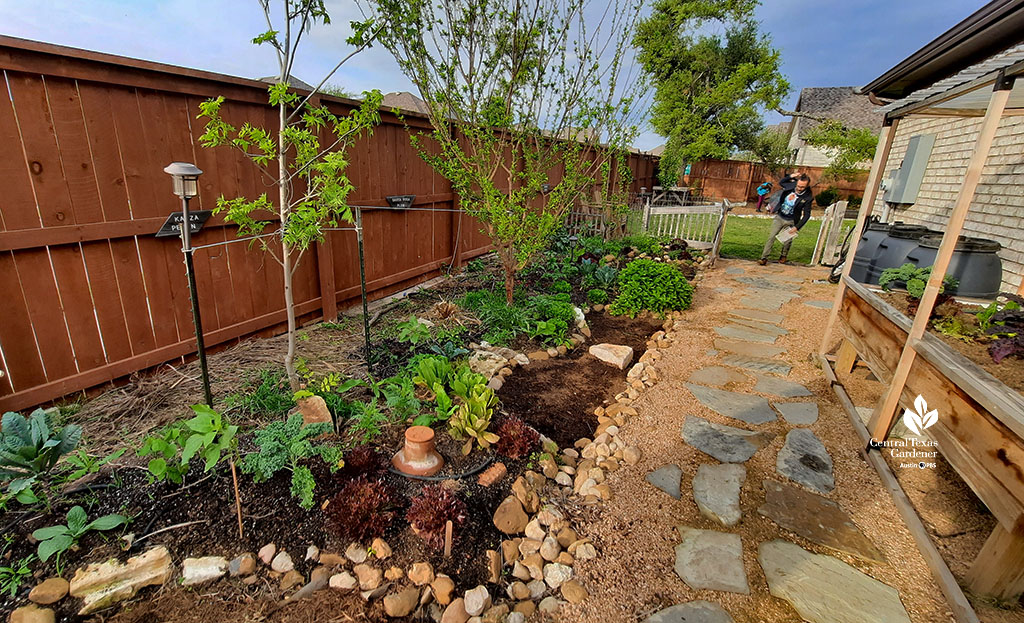
What to do with that narrow strip between your house and the neighbor’s? With permaculture techniques, designer Tyaga Welch of Sustainable Humane Earth put it to good use growing fruit trees, vegetables, herbs, and flowers for pollinators across the year–including an aquaponics system and a wicking bed.
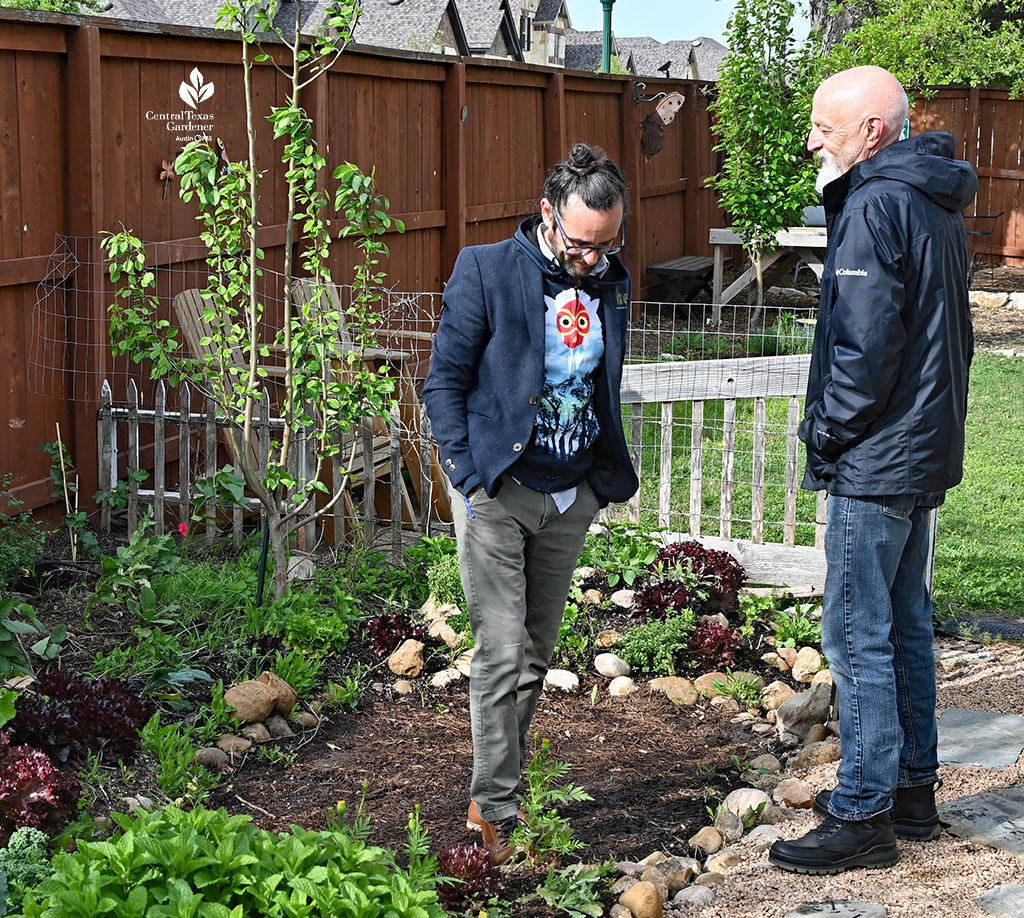
In March 2023, we headed out on a shivery day to visit a design/install he did for his parents, where he also harvests for the Texas Farmers’ Market at Mueller. Since the backyard is romping grounds for their sweet pup, they gated the side yard.
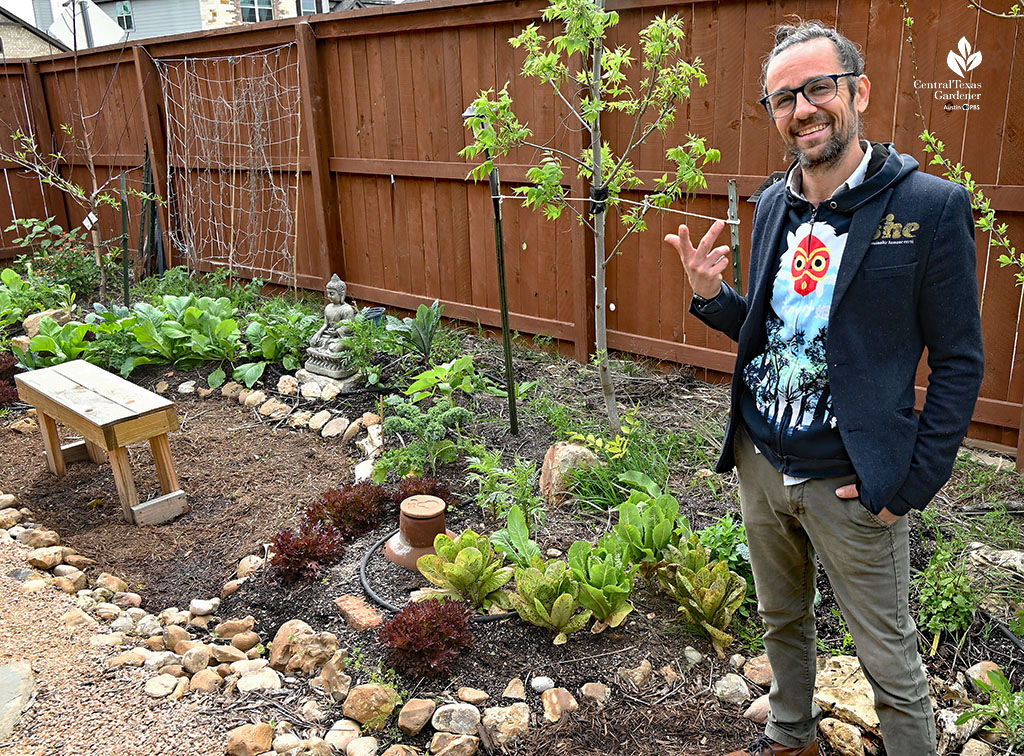
An urban permaculture food forest doesn’t require a lot of land. “You can use any sort of space to your advantage, whether small or large,” Tyaga told us of his projects across Central Texas. “It’s always a diverse network of species growing together harmoniously to protect each other.”
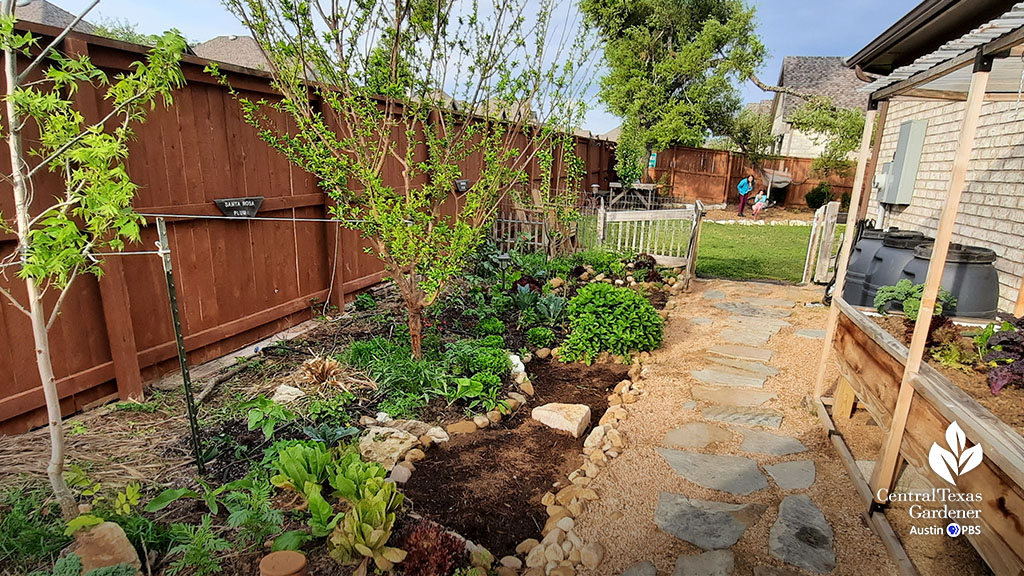
Starting in summer 2022, they smothered the grass with a thick layer of cardboard topped with mulch. “It not only snuffs out the grass and the weeds, but also that cardboard and mulch activates microbes, biology and the earthworms, and they start coming up to eat the mulch and the cardboard,” he said. Already the garden was thriving just shy of its first anniversary.
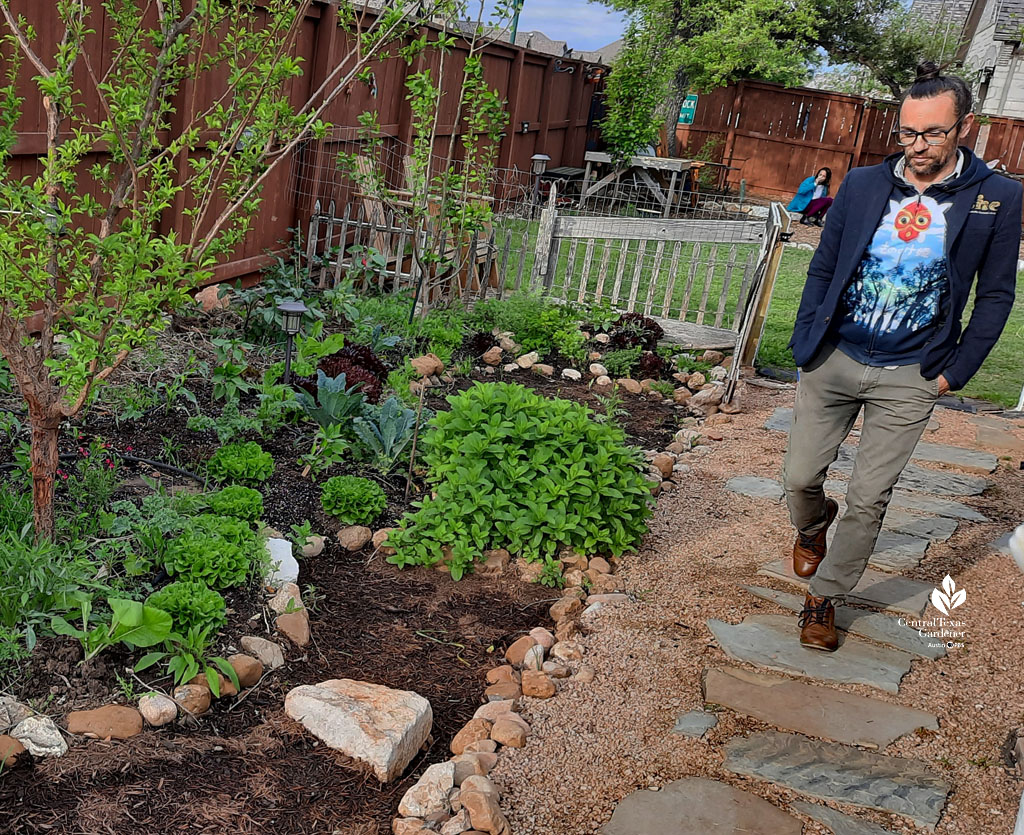
They topped the new pathway with granite and Oklahoma Silverstone flagstones.
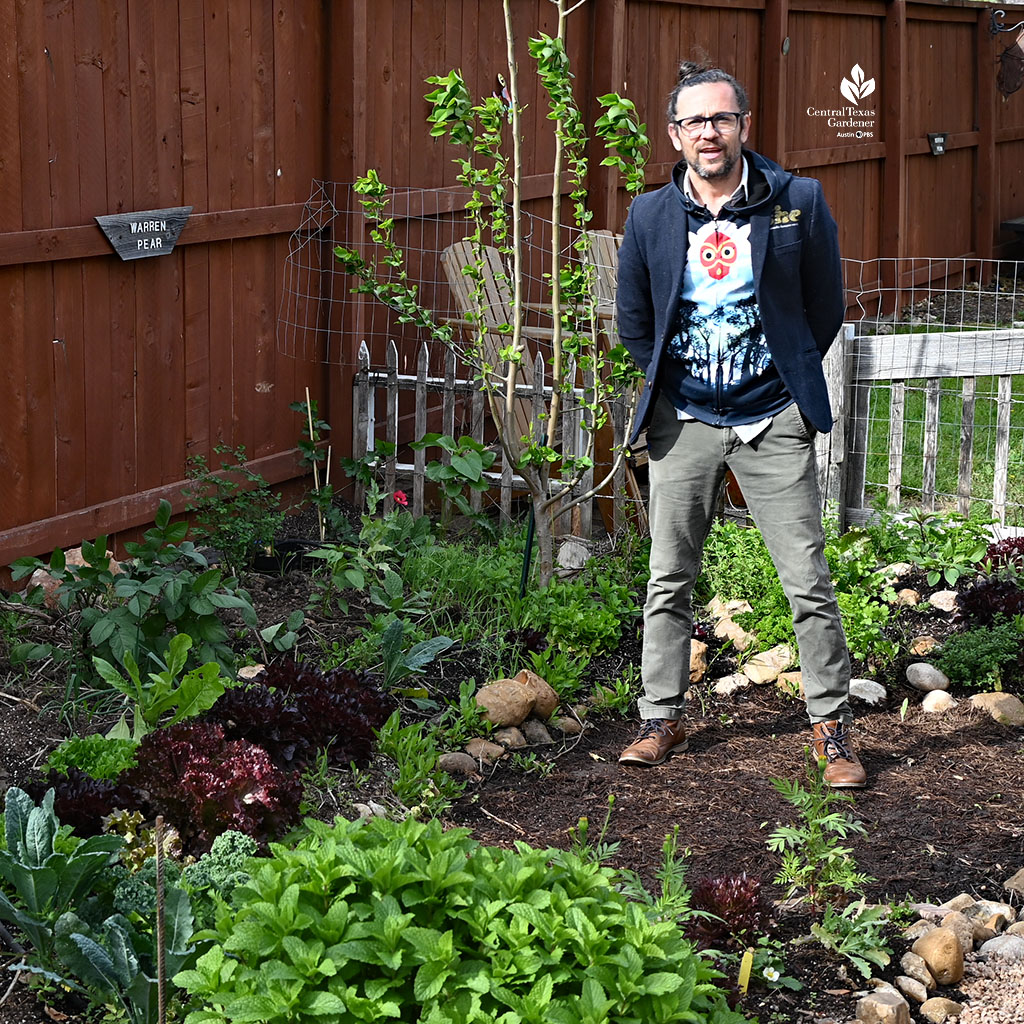
He controls rainwater flooding by slowing and dispersing it to infiltrate the soil. “We just use the rain gutter along the side of the house, put it underneath the pathway and the rainwater now leaches into a rain garden,” he said.
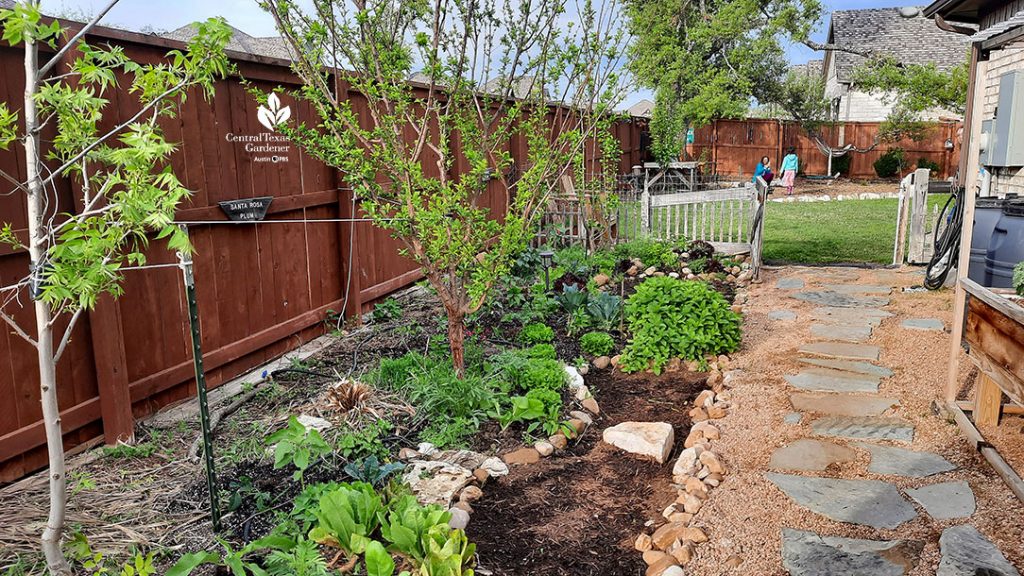
In a series of bioswales (depressions that capture rainwater) and berms (raised mounds of soil), a rock wall gabion directs overflow into the next swale all down the garden.
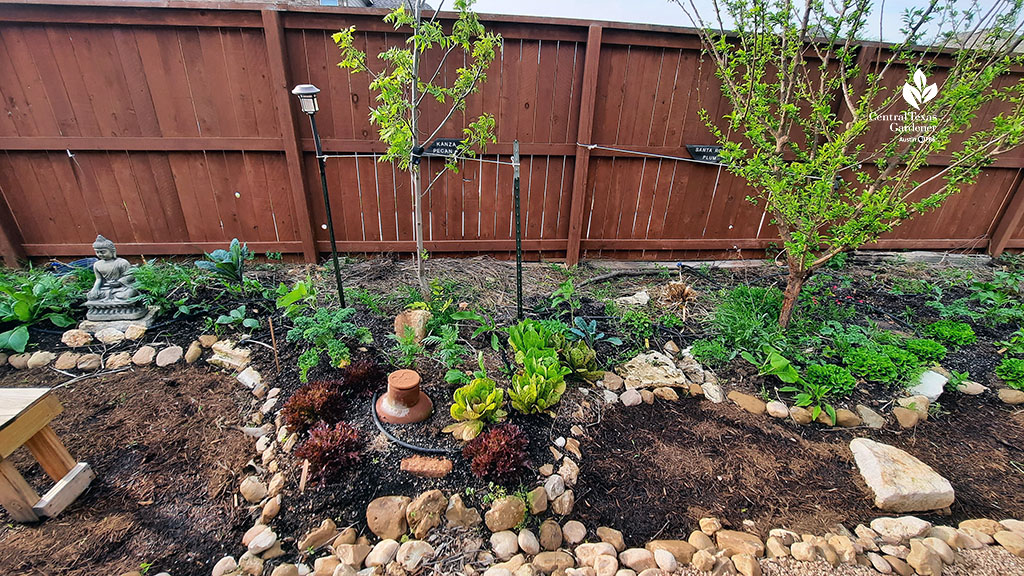
The rock wall gabion also houses frogs, lizards and other beneficial predators that control plant pests.
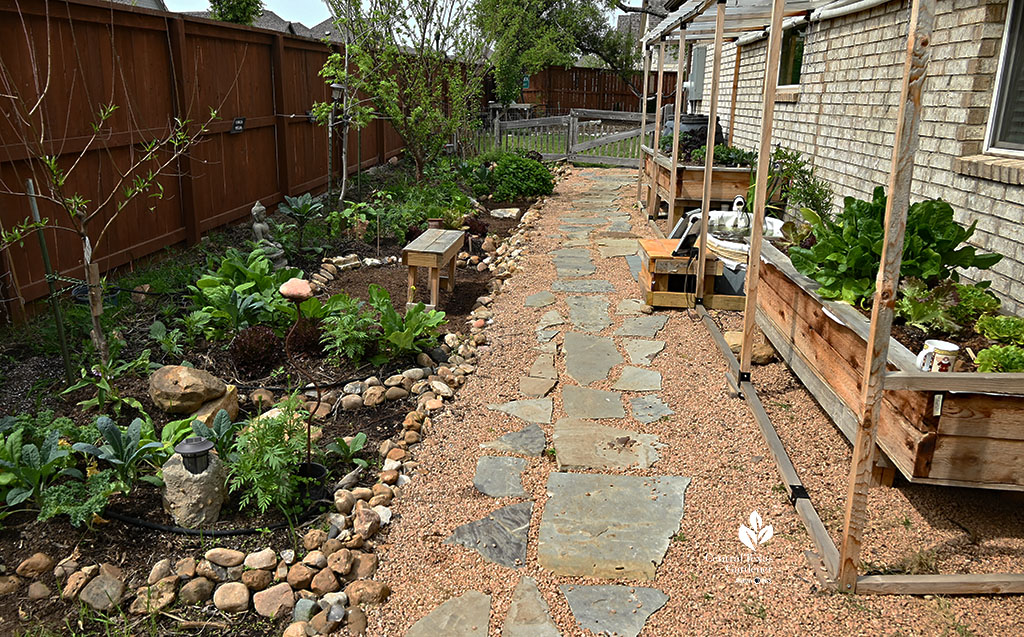
To maximize crops in a narrow space, he added wicking and aquaponics beds that grow healthy food with minimal resources.
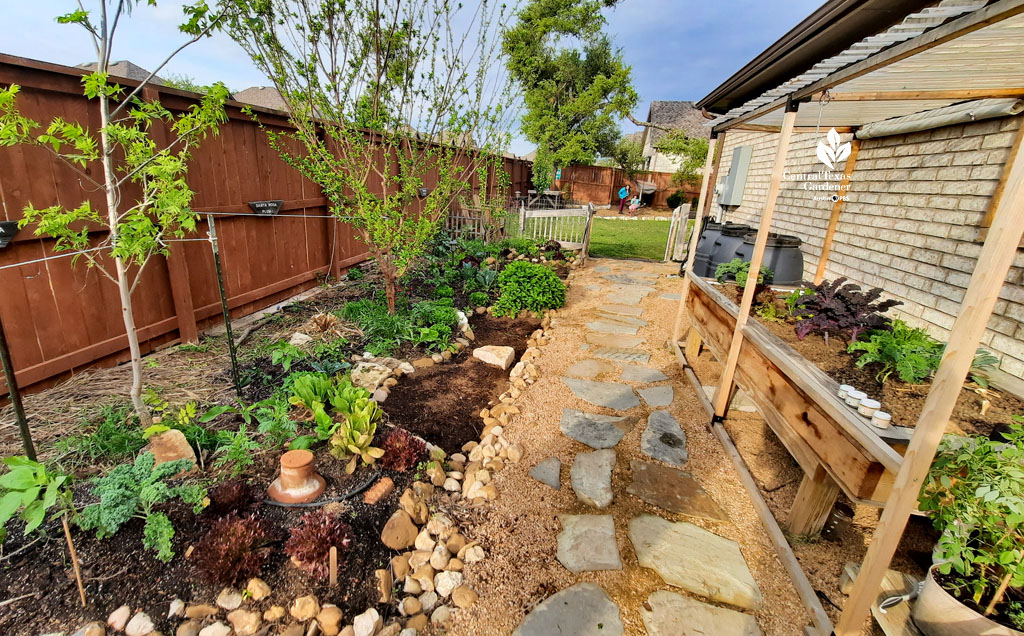
Harvested rainwater supplies the aquaponics system. Whether it utilizes fish, tadpoles, or snails, they all produce nitrogen that is pumped into the media bed with a solar pump.
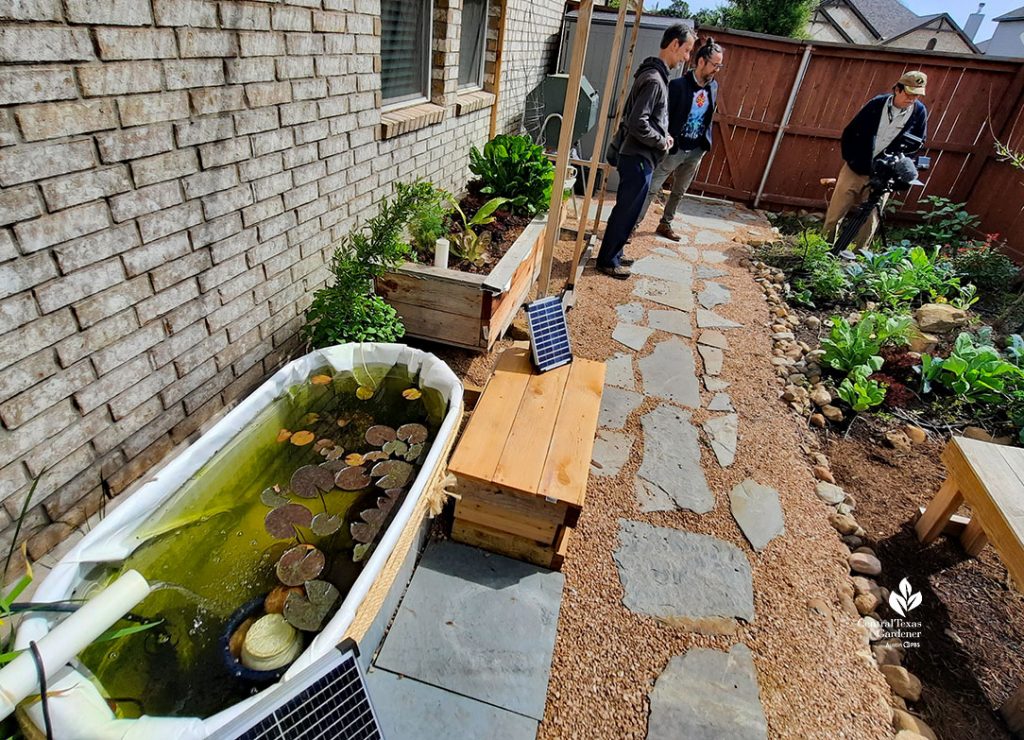
Red wiggly worms eat and digest fish waste and plant debris, transferring the nitrogen into a soluble nutrient for plant roots. The roots then filter the water further for the creatures living in the water tank which can even be an upcycled bathtub!
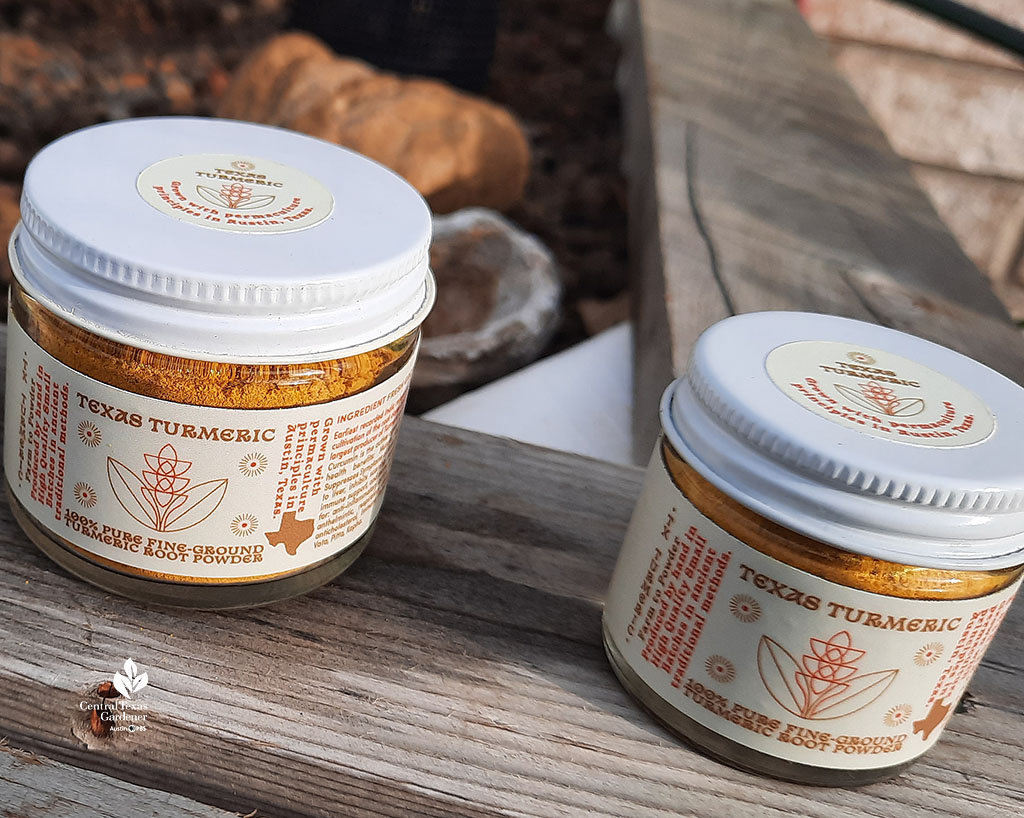
Along with vegetables, Tyaga grows turmeric in the aquaponics bed for Texas Tumeric.
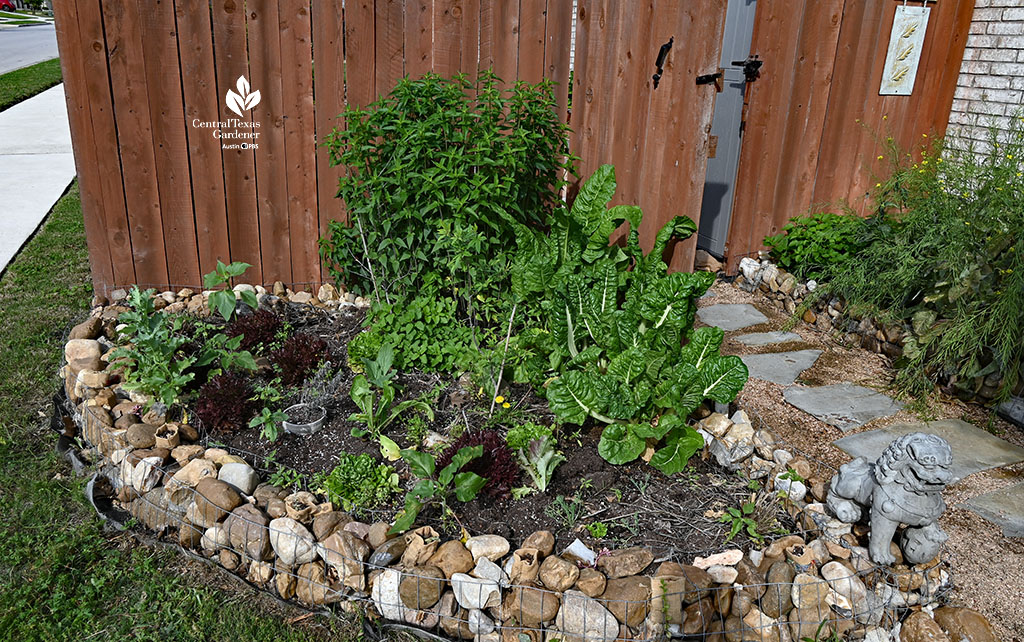
In the front yard, neighbors would never know that this bed is a water and nutrient-efficient hugelkultur. Tyaga dug down a bit to bury branches and logs. He topped that with a soil mix heavy on wood mulch to absorb and hold moisture. Another rock wall gabion encloses it.
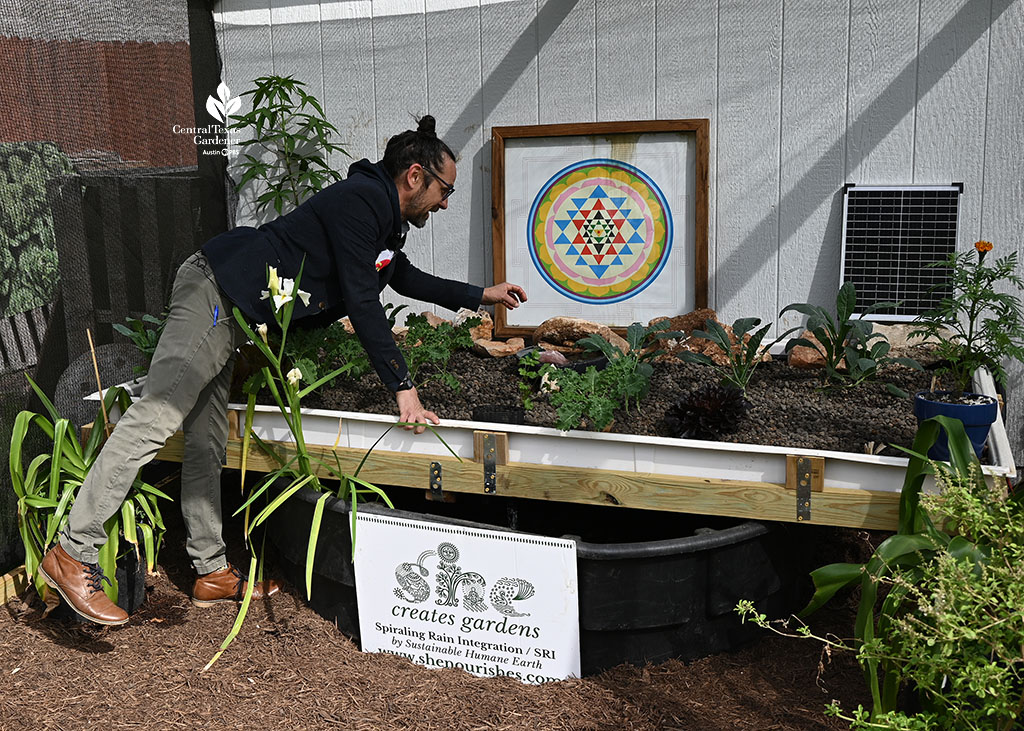
Find out more about Sustainable Humane Earth and follow along on Instagram.
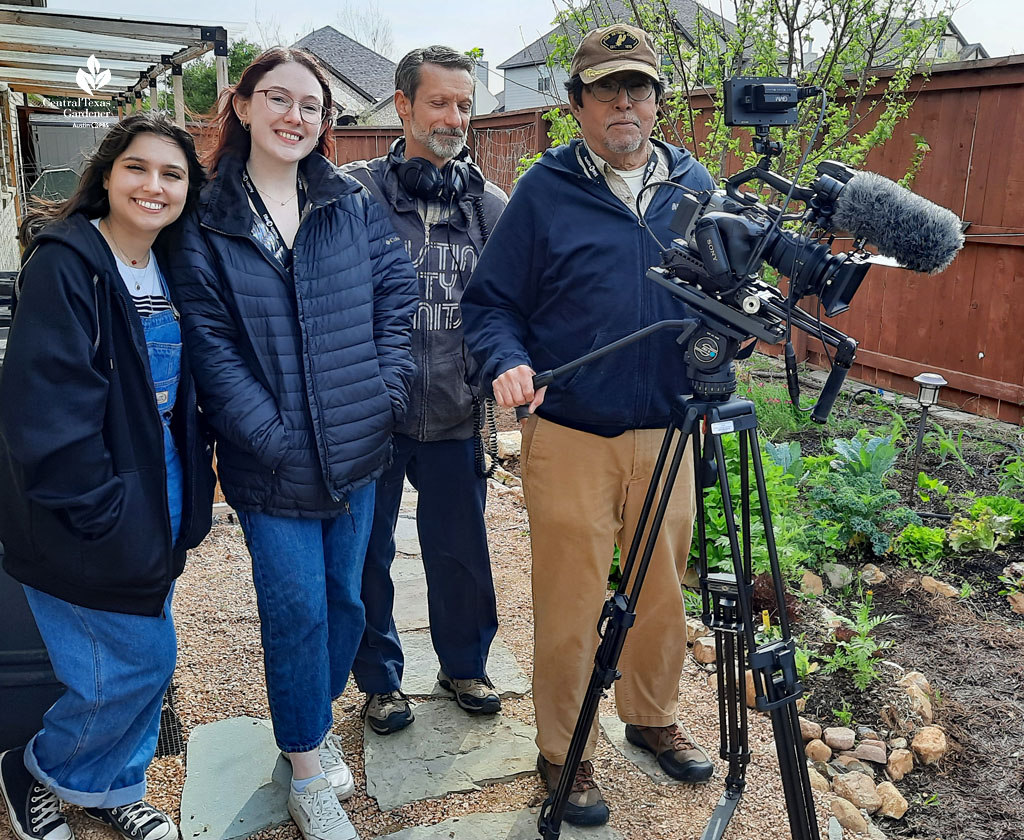
And thanks to our great spring 2023 interns, Nastassja Collack and Stella Yrigoyen, who joined director Ed Fuentes, Steve Maedl and me!
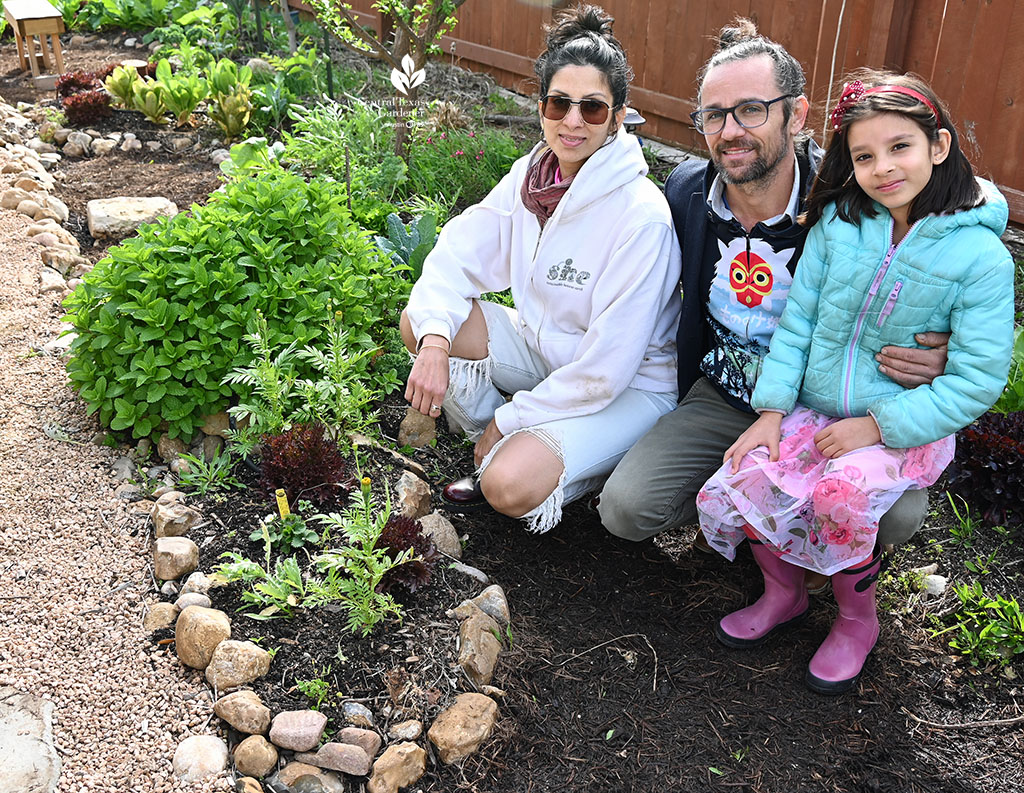
We loved meeting his parents along with his partner Gunjen and their daughter Sriya!
Watch now!
Thanks for stopping by! Linda
tags:

